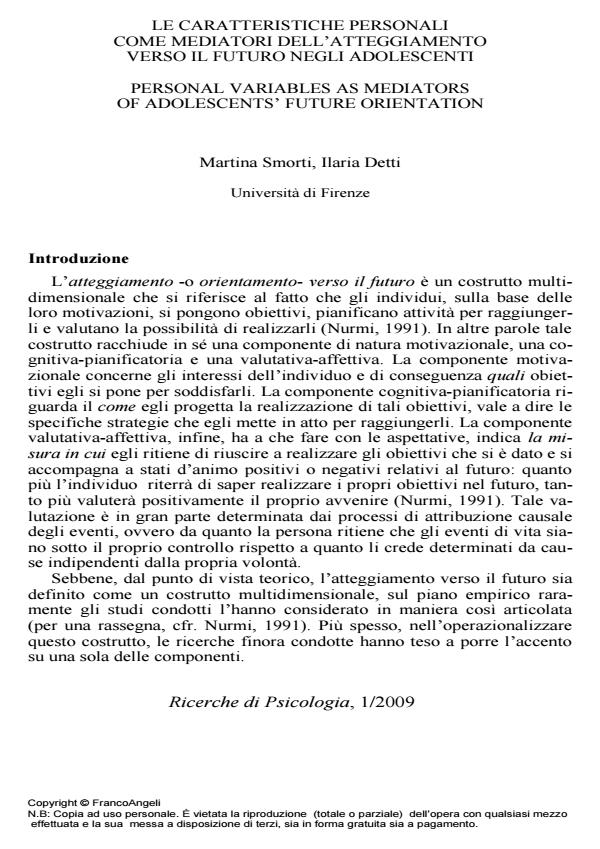Personal variables as mediators of adolescents' future orientation
Journal title RICERCHE DI PSICOLOGIA
Author/s Martina Smorti, Ilaria Detti
Publishing Year 2010 Issue 2009/1
Language Italian Pages 15 P. 77-91 File size 456 KB
DOI 10.3280/RIP2009-001005
DOI is like a bar code for intellectual property: to have more infomation
click here
Below, you can see the article first page
If you want to buy this article in PDF format, you can do it, following the instructions to buy download credits

FrancoAngeli is member of Publishers International Linking Association, Inc (PILA), a not-for-profit association which run the CrossRef service enabling links to and from online scholarly content.
The main purpose of this paper is to study coping strategies, ego- resiliency and social self- efficacy in adolescents with optimistic and pessimistic future orientation. In this context, gender differences were also considered. Method. 243 participants (115 male; 128 female; age 15- 25 years) were recruited for this study. These were divided in two groups: 145 adolescents with optimistic future orientation and 98 adolescents with pessimistic future orientation. Two groups were similar as to gender. Measures: Future orientation Scale, (Jessor, 1992), Coping Strategy Indicator (Amirkhan, 1990), Ego- Resiliency Scale (Block e Kremen, 1996), Social Self- efficacy Scale (Bandura, 1993) were employed. Results. Data analysis (MANOVA) showed that adolescents with an optimistic future orientation, compared with pessimistic one, have more social self- efficacy (p < .001), more ego resiliency (p < .001) and use more realistic coping strategies compared with those with pessimistic one (p = .01). No differences as to gender were found.
Martina Smorti, Ilaria Detti, Le caratteristiche personali come mediatori dell'atteggiamento verso il futuro negli adolescenti in "RICERCHE DI PSICOLOGIA " 1/2009, pp 77-91, DOI: 10.3280/RIP2009-001005